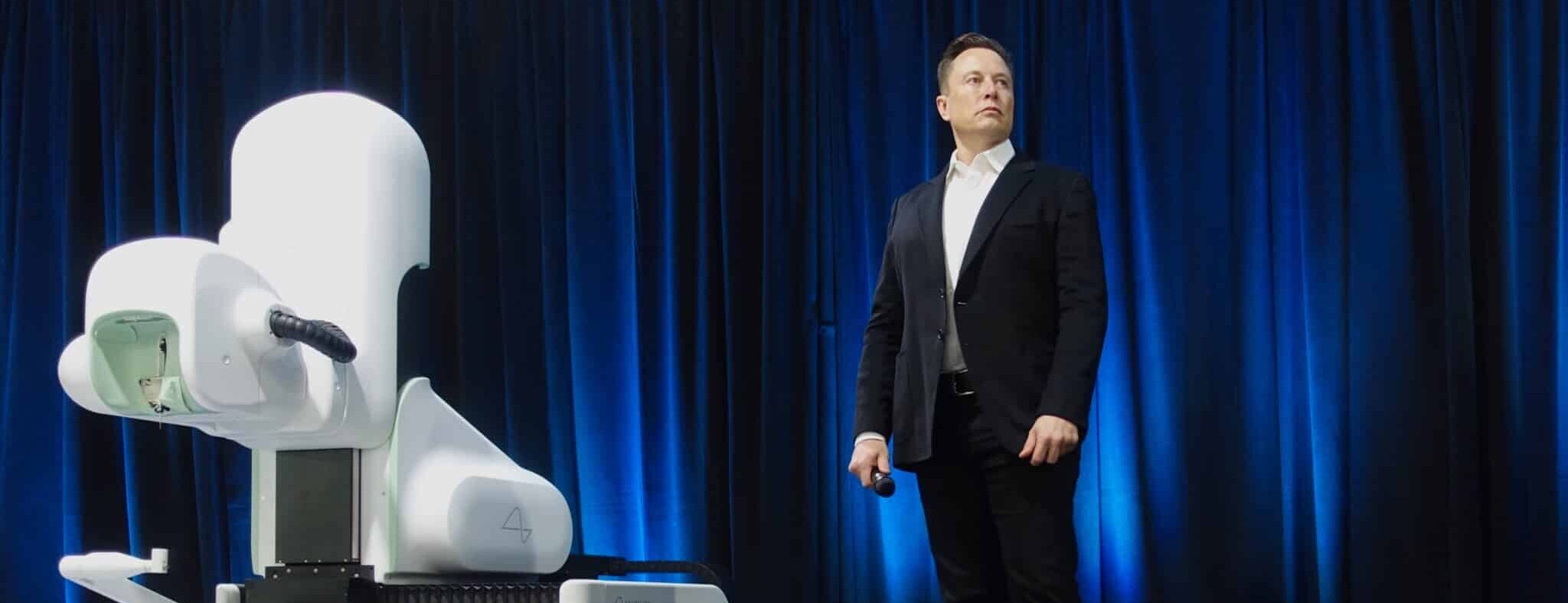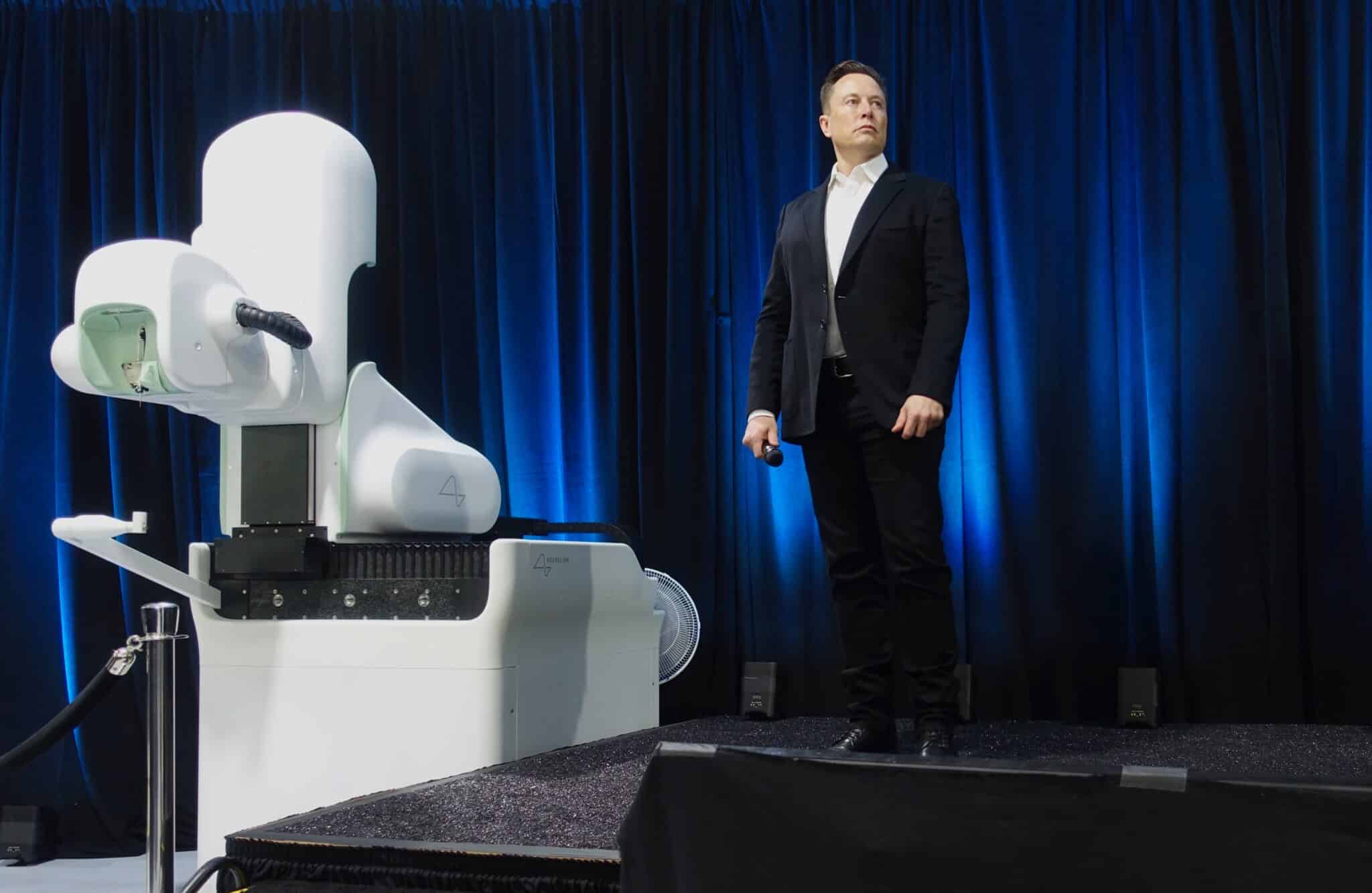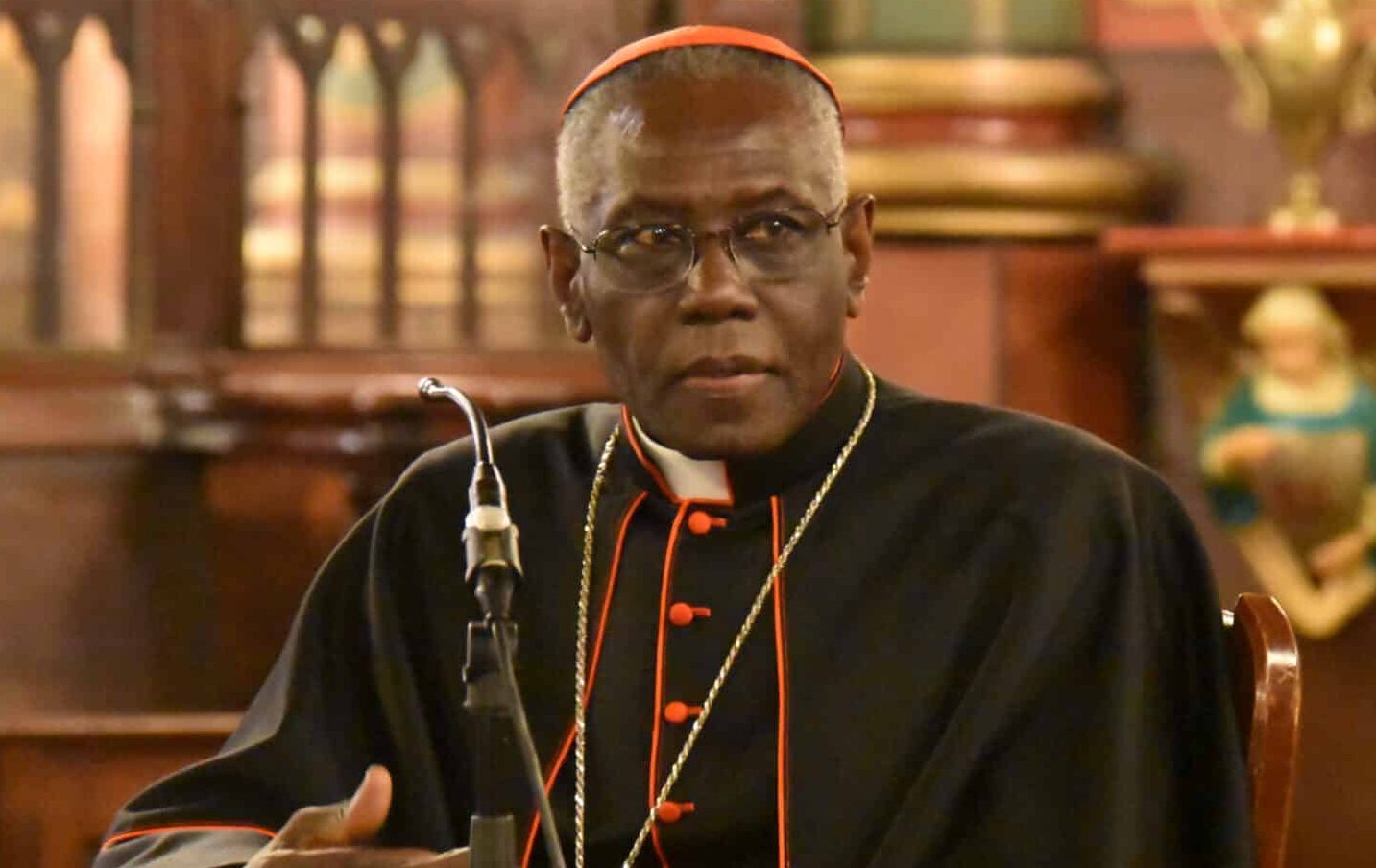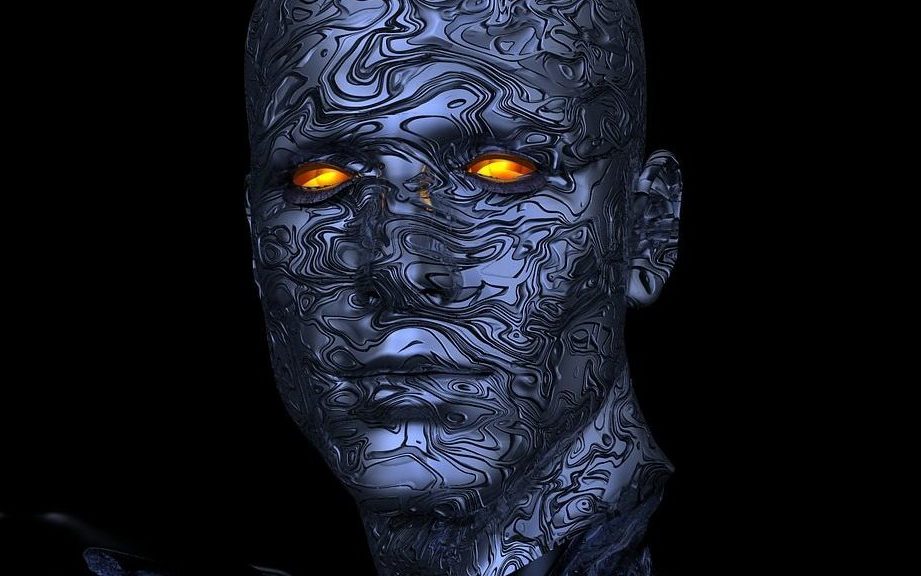Transhumanism: Will Human Machines Become “Godlike”?

Noland Arbaugh was paralyzed from the neck down in his early twenties after a diving accident. He is now twenty-nine years old and a quadriplegic. Recently, however, several videos of him playing video games went viral.
The reason for the widespread interest in Arbaugh’s video gaming is not his prowess with the games. What’s astonishing about the videos is that he is not controlling the video games with his hands or feet. He isn’t even using the extremely slow and laborious breath-controlled device that he had previously used to control his computer. Instead, he is navigating the video games entirely using his thoughts.
Arbaugh, it turns out, is the first human subject to be fitted with the Neuralink device—a device that sits in a small hole drilled into his skull, which can receive and translate brain signals through tiny fibers inserted directly into his brain. By simply thinking about what he wants to do, Arbaugh can control his computer in real-time and with such ease that he can even play highly complex games while talking to other people.
Neuralink was founded and is owned by billionaire Elon Musk. The company’s mission statement explains that the company aims to “create a generalized brain interface to restore autonomy to those with unmet medical needs today and unlock human potential tomorrow.”
Arbaugh is an astonishing success story in relation of the first part of that mission statement. His life was turned upside down after the accident that took his mobility. Neuralink has given him a new lease on life, enabling him to do such things as play computer games, write e-mails, and potentially even earn a living.
This is an amazing example of ground-breaking technologies serving legitimate medical needs; respecting human dignity while ethically restoring a lost function. This is a good development which the Catholic Church can support. Ultimately, Neuralink is hoping that through their brain implants, they may even be able to entirely cure paralysis of some patients. If they accomplish this goal, it would be one of the greatest medical breakthroughs in history.
The Transhumanist Desire to Be “Godlike”
However, there is a part of Neuralink’s mission statement that ought to give us pause. As the company proclaims, one of its goals is to “unlock human potential tomorrow.” One wonders, precisely what human potential will a brain-implanted chip allow humans to unlock?
Statements made by Elon Musk give us some clues. Musk has repeatedly indicated his belief that humans will eventually merge with computers and machines to the point of achieving a “symbiosis with artificial intelligence.” The purpose of achieving this symbiosis, according to Musk, would be to enhance human capabilities so that humans can keep pace with the rapid advances of machines.
He has argued that if humans do not augment their powers by merging with machines, there is a risk that the machines will outstrip, and ultimately replace, humans. As such, “to avoid becoming like monkeys, humans must merge with machines.”
Musk’s visions of this score are positively dystopian. He has suggested that at some point in the future, it may be possible for humans to “download” their consciousness into a computer or even into another body and thus to live forever—something that Musk clearly views as desirable.

“Elon Musk and the Neuralink Future” by Steve Jurvetson is licensed under CC Attribution 2.0 Generic license.
While Musk is perhaps the most prominent advocate of such ideas, he is far from alone.
Such ideas can be lumped under the heading of “transhumanism.” As suggested by the name, transhumanists advocate the idea that humans can be the agents of their own self-transcendence. By using and even merging with technology, humans can become something more than human. Human-machine hybrids would become super-human – endowed with super-human intelligence, memory, physical strength, and potentially even eternal life.
The last dream is one being pursued by another prominent transhumanist, Bryan Johnson. Johnson has dedicated his life to finding ways to extend his life…if possible, indefinitely. He spends millions of dollars a year in pursuing this goal, employing such disturbing strategies as infusing himself with the plasma of his teenage son.
As a recent fascinating article in The New Atlantis summarizes, transhumanists envision that, “A new age will begin in which humans will increasingly merge with artificial intelligence, preparing the way for the ultimate transhumanist vision of mind uploading: copying all the data of the brain onto computers, discarding our earthly bodies of flesh and bone, and finally achieving digital immortality—the materialistic version of what otherwise only God could promise.”
Depressive Narcissism Informs Transhumanism
Thomas Fuchs, the author of The New Atlantis article, offers the thought-provoking suggestion that transhumanism is essentially a manifestation of a peculiarly modern form of narcissism.
Fuchs notes that narcissists tend to vacillate between states of crippling self-loathing and fantastical grandiosity. Ultimately, the states of grandiosity are how the narcissist seeks to escape the feelings of self-loathing. In other words, while a narcissist often seems to have a highly exaggerated sense of his or her importance, this is only because deep down, he or she suffers from a deep sense of inadequacy.
Fuchs argues that in the past, at least in the Christian West, humans by and large had a measured sense of their importance due to their understanding of themselves as being made in the image and likeness of God. While not gods, humans had an intrinsic, ineradicable value that did not depend upon their intelligence, strength, or accomplishments.
However, once the human race began on a mass scale to abandon belief in God, humans were faced with a fundamental sense of absurdity and loneliness in the cosmos. The transhumanists, argues Fuchs, are essentially narcissists. Consumed by a sense of loneliness in a vast, impersonal universe, as well as a total lack of intrinsic self-worth, the transhumanists have reacted by pursuing godlike status.
Fuchs writes:
Western man loses his home in the center of the world; little by little, the protective Father God withdraws; thus man has become a metaphysically abandoned being. “The eternal silence of these infinite spaces frightens me,” Pascal wrote not long after Copernicus and Galileo inaugurated the new cosmology. For this feeling of loneliness, emptiness, and abandonment we now narcissistically overcompensate, by our striving for control, knowledge, progress, and power, as promised by the modern sciences. To “make ourselves like masters and possessors of nature” — that is what Descartes proudly proclaimed as the goal of scientific-technical progress, which has come to take the place of a history of divine salvation.
Cardinal Robert Sarah’s Critique
Interestingly, this is more or less precisely the same argument made by Cardinal Robert Sarah in a fascinating passage in his book The Day is Now Far Spent. In transhumanism, states Cardinal Sarah, “We are reaching here the end of the process of self-rejection and of hatred of human nature that characterizes modern man. Man hates himself to the point where he wants to reinvent himself.”

“Le Cardinal Robert Sarah” by François-Régis Salefran is licensed under the Creative Commons Attribution-Share Alike 4.0 International license. Cropped from original.
Fuchs and Cardinal Sarah both point to the fundamental paradox of this effort to achieve godlike status. The paradox is that in doing so, humans reduce themselves from persons with intrinsic value to products whose value depends entirely upon their capacities, such as intelligence, strength, or longevity.
As Cardinal Sarah notes, transhumanists speak about a program of “improving” the population by increasing people’s IQ or memories by merging with computers. This is, of course, simply a modern manifestation of the old eugenic dream, which never truly died, but has simply taken new forms in the modern world. This includes the widespread practicing of aborting “unfit” preborn children or selecting embryos for IVF based upon various characteristics.
“Who will set the norm tomorrow?” Cardinal Sarah asks about such efforts. “Who will say whether this individual or that one is high-performing enough or should be augmented? Does transhumanism seek to create a master race? These questions are terrifying and blood-chilling.”
Cardinal Sarah argues that, by abolishing any sense of the intrinsic value of the human person and by pursuing such nightmarish fantasies without any sense of ethical limits, humans are not at risk of achieving godlike status. Rather, they are at risk of abolishing humanity itself.
In making the same point, Fuchs quotes the transhumanist historian Yuval Noah Harari, who in his book Homo Deus argues that humans will inevitably merge with machines. However, in the process, they will realize that such concepts as free will were an illusion. Harari writes:
People will no longer see themselves as autonomous beings running their lives according to their wishes, but instead will become accustomed to seeing themselves as a collection of biochemical mechanisms that is constantly monitored and guided by a network of electronic algorithms.
In other words, humans will achieve a “godlike” status in that they will have immense power, and yet will have simultaneously reduced themselves to nothing more than a series of biochemical and technological processes over which they exert no real power or autonomy.
“Beyond the limit, there is nothing but the infinity of the void,” warns Cardinal Sarah. “The movement itself is what is dragging us toward nothingness. We speak about “post-human,” but after the human there is nothing!”
We are Creatures, Not “Gods”
Like Fuchs, Cardinal Sarah suggests that the remedy to the transhumanist delusion is a renewed effort to regain an appreciation for and comfort with our intrinsic limitations. For Cardinal Sarah, the fundamental limitation with which we must learn to be comfortable is our status as creatures.
He writes:
The issue of transhumanism confronts us with a choice of civilization. We can continue in the same direction, but then we risk literally renouncing our humanity. If we want to remain human, we must accept our creaturely nature and once again turn to the Creator. The world has chosen to organize itself without God, to live without God, to think about itself without God. It is in the process of making a terrible experiment: wherever God is not, hell is there. What is hell if not the privation of God? The transhumanist ideology illustrates this perfectly. Without God, nothing remains but what is not human, the post-human. More than ever the alternative is simple: God or nothing!
As Fuchs rightly diagnoses, the towering arrogance of the technologists is ultimately superficial. Scratch the surface of the inflated self-importance, and what you find is the fear and vulnerability of a lost child. Modern man has lost a sense of his place in the hierarchy of being. Once modern man killed God, he came to think of himself as the most godlike thing in existence and has attempted to rise to the occasion.

However, this is a desperate, self-defeating effort. Humans are intrinsically limited, and our efforts to achieve godlike status will only produce growing desperation and anger. No amount of technological enhancement can bring one moment of authentic happiness – the kind of happiness that comes from a calm acceptance of the truth of our status as limited creatures whose ultimate fulfillment is not found in increased power, but rather in a right relationship with our Creator.
Ironically, the achievement of greater power and longevity is likely only to exacerbate our sense of worthlessness, loneliness, and impotence. Every gain in power and longevity will only further highlight how helpless and limited we are, and how much in need we are of our Creator.
The good Cardinal concludes with this magnificent summary of the problems with transhumanism:
The Promethean dream of an unbounded life, of an infinite power, is a lure, a diabolical temptation. Transhumanism promises that we will become gods “concretely.” This utopia is one of the most dangerous in all of human history: the creature has never before tried to distance himself definitively from the Father to this extent.
The Cross is the Answer
As Cardinal Sarah notes, the answer to the ideology of transhumanism is found in an embrace of the Cross. Speaking directly to the sick and suffering, Cardinal Sarah proclaims that such people have “a special dignity” because they have “a singular resemblance to Christ crucified.”
Indeed, there is a dangerous paradox of Musk’s transhumanism and the success of his Neuralink. In his attempt to “unlock human potential” by normalizing the technological augmentation of healthy humans, he may simultaneously undermine his dream of using this technology to heal the sick.
Offering new hope and health to quadriplegics is an amazing human accomplishment. But the quadriplegic does not suddenly have more value as a person because of his renewed abilities. The transhumanist movement, however, suggests that the value of humans will indeed become measured by the extent to which they possess power – a power that is not even their own, but which is granted to them through technological prostheses.
Arbaugh’s joy at his newfound abilities is infectious. This is how technology ought to be used: not to make men gods, but to serve humans by bringing about healing and reducing needless suffering. It is my prayer that the technological advances of the human race will be accompanied by a growth in human wisdom. Unless this occurs, Cardinal Sarah’s warnings of a “blood-chilling” dystopia may well become a reality.


Excellent reflection, Father, which captures the essence of transhumanism and its madness. God bless!
Fr Shenan,
I am outraged.
The shallowness of your thinking is bad enough, but I have engaged in neural regeneration successfully for over three decades. Not so much quantity as Homeopathy has been demoted by your Pharmaceutical industries, imported from German in 1945!!! Operation Paper clip. How many of our Archdioceses invested in that vile and destructive industry?
And guess what – every time I CURE PARALYSIS, thrombotic, or traumatic, some well meaning family member brings the poor patient BACK to the allopaths who kept them in a semi vegetative state for years, or lying tethered to a respirator for months.
I quickly restored sensation and movement to an African priest – guess what, the nurse serving his order, then referred him for physiotherapy and after nine sessions a week the poor man suffered a cerebral haemorrhage. i said no more than two sessions per week to start with.
And now, HLI is approving of this highly dangerous, highly questionable, potentially highly unethical programs, by a man who made the most egregious travesty of electric cars, glomming off the name of a great physicist whose work he ignored, and whose claim to have sent people to space is HIGHLY QUESTIONABLE.
How many people will die or be manipulated if this man runs with this “neurolink?”
Do you seriously believe this will lengthen his life?
I’ll take care of him. I’ll treat him.
At least the late great Cardinal O’Connor invited me to explore the prospect of introducing AUTHENTIC Homeopathy into Catholic Hospitals; his big strong bureaucratic health care managers were, to be kind, not helpful.
Too many prelates and clerics committed idolatry during the shamdemic. Now, do not get behind this Neuro link. One of the most dangerous “inventions” of all time.
I can say that, because I have already proven, time and time again, that SKILLED, AUTHENTIC HOMEOPATHY CAN DO FAR BETTER.
But do you the Pharmaceutical “Industry” that profits from the sale of abortifacients, or the ancillary poisons used in surgical butchery of pre natal infants, or in the chemical murder of the sick, depressed or elderly, wants this knowledge out there?
Your chief representative in Knock, Ireland, is a pharmacist. Granted, anti abortion, but it stops there. Local GP wanted to steal my successes as “Knock Miracles.” Smear campaign started after I told him I had the same results in the USA, Italy, England, Ireland, Israel, Germany, etc., etc.
I was forced into a nomadic lifestyle after I was the first to warn about the mRNA bioweapon. Only a saint helped me; not the institutions of the various Archdioceses that I was forced to drive through. And now HLI is exposing the spiritual BANKRUPTCY OF OUR CHURCH TODAY? Please don’t tempt me to join the Protestants and Jews. We have the Eucharist. We should be doing it better!
Let’s put our own house in order before we start praising our dodgy neighbours.
Books: “Mitochondrial Murder?” “Homeopathy in the Time of Covid,” “Heart of Mercy” “O Tempore O Mores, O Fiducia Supplicans…” etc.
Dear Dr. McNamara,
Thank you for your interest in this topic.
Father Boquet responds to both the good and bad represented by Neuralink in this article;
“This is an amazing example of ground-breaking technologies serving legitimate medical needs; respecting human dignity while ethically restoring a lost function. This is a good development which the Catholic Church can support. Ultimately, Neuralink is hoping that through their brain implants, they may even be able to entirely cure paralysis of some patients. If they accomplish this goal, it would be one of the greatest medical breakthroughs in history.”
Father Boquet is commending specific efforts to restore lost function in a paralyzed individual, not endorsing Neuralink’s other transhumanist interests. As he goes on to say further in the article;
“However, there is a part of Neuralink’s mission statement that ought to give us pause. As the company proclaims, one of its goals is to “unlock human potential tomorrow.” One wonders, precisely what human potential will a brain-implanted chip allow humans to unlock?
…He [Musk] has argued that if humans do not augment their powers by merging with machines, there is a risk that the machines will outstrip, and ultimately replace, humans. As such, “to avoid becoming like monkeys, humans must merge with machines.”
Musk’s visions of this score are positively dystopian. He has suggested that at some point in the future, it may be possible for humans to “download” their consciousness into a computer or even into another body and thus to live forever—something that Musk clearly views as desirable.”
Human Life International does not endorse transhumanism and indeed has published several articles regarding the dangers and hubris of man attempting to remake himself in his own image. Please see the two linked below.
https://www.hli.org/resources/dangers-of-transhumanism/
https://www.hli.org/resources/what-is-transhumanism/
As Father Boquet concludes in this article,
“This is a desperate, self-defeating effort. Humans are intrinsically limited, and our efforts to achieve godlike status will only produce growing desperation and anger. No amount of technological enhancement can bring one moment of authentic happiness – the kind of happiness that comes from a calm acceptance of the truth of our status as limited creatures whose ultimate fulfillment is not found in increased power, but rather in a right relationship with our Creator.
Ironically, the achievement of greater power and longevity is likely only to exacerbate our sense of worthlessness, loneliness, and impotence. Every gain in power and longevity will only further highlight how helpless and limited we are, and how much in need we are of our Creator.”
~ HLI STAFF